With one of the lowest birth rates in the world, activists in Singapore are using clever advertising campaigns and humor to try to trigger a baby boom.
society (Page 52)
South Korea is a popular travel destination adored by many, but a recent survey suggests that almost 80 percent of its citizens want out. Why?
Japanese blogger and internationalist Madame Riri explores five prejudices and misconceptions foreign male-Japanese female couples experience in Japan.
To coincide with Japan’s annual “Kanji of the Year” event, which reveals the mood of 2015 with a Chinese character, popular online dictionary site Weblio asked its Japanese users to nominate an “English vocabulary word of the Year”. The top ten results provide a unique insight into the hot topics of interest in Japan in 2015.
‘Tis the season for grumbling about cultural differences, but does it have to be?
Perhaps unsurprisingly, Japan’s Ministry of Health, Labour and Welfare found that lower-income families consumed fewer vegetables and had fewer teeth.
Tough economic times can and do happen everywhere in the world. Even in wealthy, developed countries like Japan, some folks struggle every day to make ends meet. Sometimes, those people are families with young children.
Childhood hunger is a worldwide problem, and while no one deserves to go hungry, it is an especially sad situation for children. For one thing, they can’t really do anything to help better their situation, and secondly, they need the food and nutrition to help their bodies continue to grow properly. In Japan, approximately 16 percent of two-parent families are financially unable to provide enough food for their children, and that number jumps to 32 percent for single-parent households, according to a 2012 survey. But there are some who refuse to stand by doing nothing and are dedicating themselves to feeding the hungry children in Japan.
During our Women in Japan series, we discussed some of the powerful reasons to be a woman in Japan. From a Westernised viewpoint, it’s sometimes hard to accept the fact that, while Japan is still very much a patriarchal society, many women (not all, but many) here don’t actually want to be out there smashing glass ceilings and “leaning in” at the office when instead they could be doing things that women were traditionally appreciated for in Japan, namely cooking, housekeeping and raising the kids.
If you’re still in doubt as to exactly what Japanese women think of the gender gap in their country, this informative street interview video from YouTuber Yuta Aoki should provide some answers.
A while back, we had some fun talking about five of the more noteworthy types of foreigners you’ll meet in Japan, based upon observations drawn from our time spent working and living here in the Land of the Rising Sun. Whether you’re a Plastic Sensei, Hateimus Japanicus, Secret Ninja, Bubble Dweller or Kid in a Candy Store (or indeed, all of these at different times), we reckon there’s probably quite a lot foreign residents can find to nod their heads at when considering each of those five extreme types.
But what about the flip side of the coin? Spend enough time as a foreigner in a country like Japan—a place that’s 98.5% ethnically Japanese—and you’ll be sure to notice that Japanese people will approach you, the foreigner, in a number of different ways. Today we’d like to share our thoughts on six kinds of Japanese people foreigners might meet during their time in Japan. See how many of them you’ve come across during your time traveling or living in the country!
Cell phone service in Japan isn’t exactly cheap, and if you spend a lot of time on your smartphone talking with clients, chatting with friends, or otherwise keeping in touch with the rest of the world, it’s not hard to run up a monthly bill in the neighborhood of 10,000 yen (US$84). Thankfully, Japanese providers offer a variety of discounts to help soften the blow, with reduced rates for family members being a huge help.
Now, as part of the changing societal concept of what constitutes a family, Japan’s largest telecommunications provider has begun offering family discounts to same-sex couples who present documentation of their union.
It’s no secret that Japan may be headed for a bit of a labor crunch, as the population ages and many older workers reach retirement age with fewer young up-and-comers to replace them. And, while the Japanese government seems reluctant to take measures to replenish the shrinking workforce with foreign laborers, non-Japanese workers are nevertheless entering Japanese corporations and workplaces in record numbers.
But Japanese offices are also notorious for their long hours, slow pace of advancement, and frequent, long meetings. Traditional Japanese companies seem stuck in an old-school work culture even as companies in the rest of the world offer increasingly progressive work-life balance programs, workplace perks, and office hours.
With this stark contrast in mind, our Japanese sister site tracked down seven non-Japanese workers to get their for-realsies impressions of what it’s actually like to work at a Japanese company.
It seems like we’re constantly being bombarded with tips and tricks about how to make our lives better or how to improve our quality of life. We’re always being told to change the way we eat, the way we sleep, include some daily physical activity, and re-organize our lives. Everyone has something different to say, but one thing they seem to have in common is the positive spin they put on their life improvements.
That’s not strictly true for Japanese television though. One recent program seemed to be taking a cue from the fear-based strategies of American TV, and spent an entire segment talking about habits in your household that are likely to decrease your lifespan.
Find out the five habits you should be wary of, apparently, after the jump.
According to statistic, anywhere from one to two million people visit Japan per month, and more foreigners are working and living here than ever before. That’s a lot of people hopping a plane over, and especially if yours is a one-way flight, preparing yourself mentally before you arrive in Japan is just as important as the physical things you pack with you in your suitcase.
Think you’ve done all your research when it comes to the Land of the Rising Sun? Check out this video on five things you should know before making the big move.
While Japan is famous for its animation, food, pop-culture, it’s also infamous for its extremely high suicide rates. Many Japanese students and salarymen succumb to the pressures of school and work by taking their own lives. There is little knowledge about what factors increase the risk of suicide, but recent research has found that people, namely adolescents, born between January 1 and April 1, are 30 percent more likely to commit suicide.
Last month, we took a look at how in Japan many children are expected to commute to school without their parents’ help starting in elementary school. That’s not the only amazing display of responsibility that’s part of everyday life for Japanese kids, though.
Not only do Japanese schools not have school busses, they also don’t have food-serving or cleaning staff. That means it’s the students themselves who’re responsible for distributing school lunches and keeping the building clean, and the diligence with which they go about their tasks would put many full-blown adults to shame, as shown in this video of all the things Japanese grade schoolers are expected to do during a typical school day in addition to studying.
It’s no exaggeration to say that Japan is pretty obsessive when it comes to societal safety and manners. Japanese people often go to ridiculous/disgusting lengths to stay safe and to make sure that visitors are aware of all the unspoken rules that permeate throughout the country.
But sometimes it’s all just too much, even for the native Japanese themselves. So we present to you a list of the top 10 things that even Japanese people think they’re too obsessive over. Are you just as paranoid as they are, or would you be considered a carefree spirit in Japan? Read on to find out!
With Japan consistently appearing in the lowest ranks for gender equality in industrialised nations, the adoption of Prime Minister Abe’s recent bill to promote the role of women in the workplace has been a welcome development in what remains a traditionally patriarchal society.
What the headlines fail to mention, however, are the archaic laws entrenched in the country’s Civil Code that continue to hold women back, including same surname requirements upon marriage, and differences in the minimum marriageable age and re-marriage prohibition period for both sexes.
The UN Committee on the Elimination of Discrimination Against Women has again called for a revision of Japan’s current laws, slamming the country for being one of the few industrialised nations where it remains illegal for married couples to have different surnames.
When foreigners first move to Tokyo, they’re often amazed and overwhelmed by Japan’s biggest bustling metropolis. But sometimes culture shock can be more localized, and just because you haven’t left the country doesn’t mean there aren’t any surprises in store when you move to a new town.
Hokkaido has more than five times the area of any other Japanese prefecture, and the lowest population density in the country to boot. So when someone born and raised on the northern island moves down south to Tokyo, which is more than 90 times as crowded as Hokkaido, he’s sure to be surprised by a lot of things, and here are 30 of them.







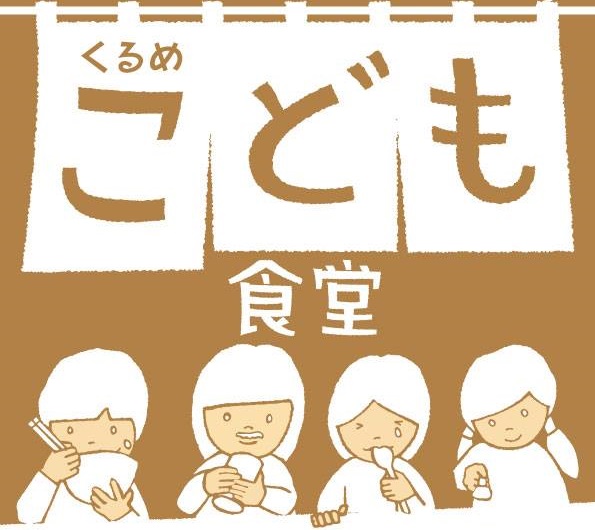

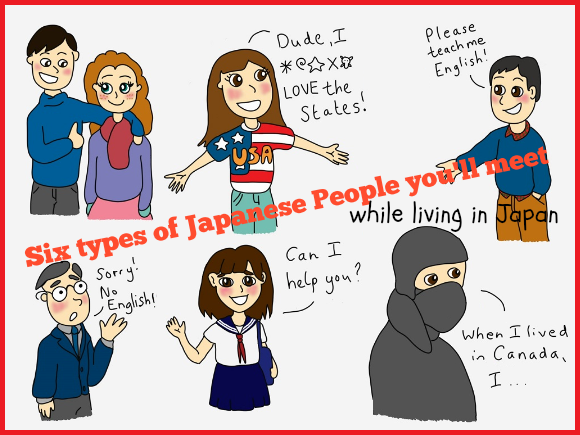
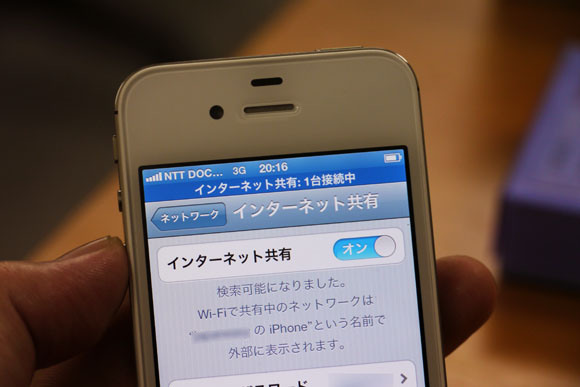





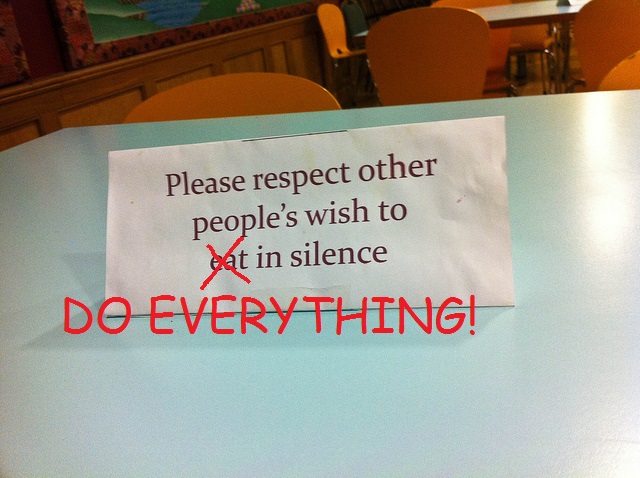
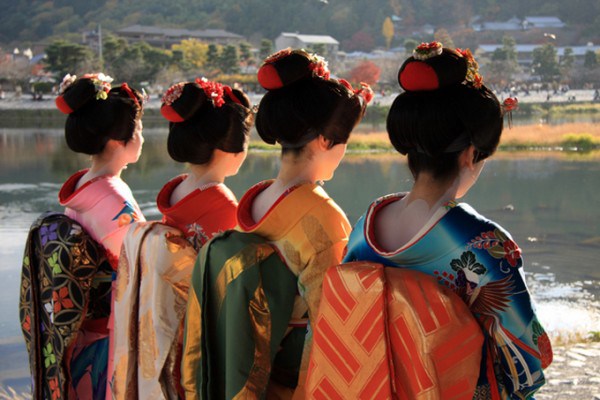

 “Mt. Fuji convenience store” issues apology for bad tourist manners, adds multilingual signs
“Mt. Fuji convenience store” issues apology for bad tourist manners, adds multilingual signs Tokyo sweets store sells beautiful soft serve ice creams that look like works of art
Tokyo sweets store sells beautiful soft serve ice creams that look like works of art Kumamoto Governor embroiled in flower scandal
Kumamoto Governor embroiled in flower scandal Is the absolute closest conveyor belt sushi to Akihabara Station any good? Let’s find out!
Is the absolute closest conveyor belt sushi to Akihabara Station any good? Let’s find out! Is Japan’s massive Shizuoka steak sandwich really as delicious as it looks in promo photos?
Is Japan’s massive Shizuoka steak sandwich really as delicious as it looks in promo photos? Cheap Japanese ryokan at Kusatsu Onsen is hidden at the back of a traditional store
Cheap Japanese ryokan at Kusatsu Onsen is hidden at the back of a traditional store Japan has nearly 4 million abandoned homes, but where and why?
Japan has nearly 4 million abandoned homes, but where and why? Studio Ghibli unveils new goods that tip the hat to The Cat Returns
Studio Ghibli unveils new goods that tip the hat to The Cat Returns This is Japan’s, and the world’s, first capsule hotel, and you can still stay there
This is Japan’s, and the world’s, first capsule hotel, and you can still stay there Kyoto government worker assaults coworker for spoiling popular manga series at the office
Kyoto government worker assaults coworker for spoiling popular manga series at the office McDonald’s Japan’s new pancake pie is a taste sensation
McDonald’s Japan’s new pancake pie is a taste sensation Bad tourist manners at Mt Fuji Lawson photo spot prompts Japanese town to block view with screens
Bad tourist manners at Mt Fuji Lawson photo spot prompts Japanese town to block view with screens FUK COFFEE?!? Japanese cafe has a perfectly innocent reason for its startling-looking name
FUK COFFEE?!? Japanese cafe has a perfectly innocent reason for its startling-looking name How to make a secret rice bowl at Ichiran ramen
How to make a secret rice bowl at Ichiran ramen One of Japan’s oldest castles now lets travelers spend night on the grounds, drink in its keep
One of Japan’s oldest castles now lets travelers spend night on the grounds, drink in its keep Foreigner’s request for help in Tokyo makes us sad for the state of society
Foreigner’s request for help in Tokyo makes us sad for the state of society Two things to do, and two things not to do, when leaving a traditional Japanese inn
Two things to do, and two things not to do, when leaving a traditional Japanese inn McDonald’s new Happy Meals offer up cute and practical Sanrio lifestyle goods
McDonald’s new Happy Meals offer up cute and practical Sanrio lifestyle goods Our Japanese reporter visits Costco in the U.S., finds super American and very Japanese things
Our Japanese reporter visits Costco in the U.S., finds super American and very Japanese things Japanese ramen restaurants under pressure from new yen banknotes
Japanese ramen restaurants under pressure from new yen banknotes All-you-can-drink Starbucks and amazing views part of Tokyo’s new 170 meter-high sky lounge
All-you-can-drink Starbucks and amazing views part of Tokyo’s new 170 meter-high sky lounge More foreign tourists than ever before in history visited Japan last month
More foreign tourists than ever before in history visited Japan last month Disney princesses get official manga makeovers for Manga Princess Cafe opening in Tokyo
Disney princesses get official manga makeovers for Manga Princess Cafe opening in Tokyo French Fries Bread in Tokyo’s Shibuya becomes a hit on social media
French Fries Bread in Tokyo’s Shibuya becomes a hit on social media Sales of Japan’s most convenient train ticket/shopping payment cards suspended indefinitely
Sales of Japan’s most convenient train ticket/shopping payment cards suspended indefinitely Sold-out Studio Ghibli desktop humidifiers are back so Totoro can help you through the dry season
Sold-out Studio Ghibli desktop humidifiers are back so Totoro can help you through the dry season Japanese government to make first change to romanization spelling rules since the 1950s
Japanese government to make first change to romanization spelling rules since the 1950s Ghibli founders Toshio Suzuki and Hayao Miyazaki contribute to Japanese whisky Totoro label design
Ghibli founders Toshio Suzuki and Hayao Miyazaki contribute to Japanese whisky Totoro label design Tokyo’s most famous Starbucks is closed
Tokyo’s most famous Starbucks is closed Doraemon found buried at sea as scene from 1993 anime becomes real life【Photos】
Doraemon found buried at sea as scene from 1993 anime becomes real life【Photos】 One Piece characters’ nationalities revealed, but fans have mixed opinions
One Piece characters’ nationalities revealed, but fans have mixed opinions We asked a Uniqlo employee what four things we should buy and their suggestions didn’t disappoint
We asked a Uniqlo employee what four things we should buy and their suggestions didn’t disappoint Cheap Japanese ryokan at Kusatsu Onsen is hidden at the back of a traditional store
Cheap Japanese ryokan at Kusatsu Onsen is hidden at the back of a traditional store Japan has nearly 4 million abandoned homes, but where and why?
Japan has nearly 4 million abandoned homes, but where and why? Studio Ghibli unveils new goods that tip the hat to The Cat Returns
Studio Ghibli unveils new goods that tip the hat to The Cat Returns This is Japan’s, and the world’s, first capsule hotel, and you can still stay there
This is Japan’s, and the world’s, first capsule hotel, and you can still stay there Kyoto government worker assaults coworker for spoiling popular manga series at the office
Kyoto government worker assaults coworker for spoiling popular manga series at the office McDonald’s Japan’s new pancake pie is a taste sensation
McDonald’s Japan’s new pancake pie is a taste sensation How to make a secret rice bowl at Ichiran ramen
How to make a secret rice bowl at Ichiran ramen Starbucks Japan sells a paper tote bag that looks like a free bag…so should you buy it?
Starbucks Japan sells a paper tote bag that looks like a free bag…so should you buy it? Foreigner’s request for help in Tokyo makes us sad for the state of society
Foreigner’s request for help in Tokyo makes us sad for the state of society Shinkansen station platforms now have…Baskin Robbins ice cream vending machines!
Shinkansen station platforms now have…Baskin Robbins ice cream vending machines! Dragon reformation and the largest clay Budda in Japan: A visit to Okadera Temple【Photos】
Dragon reformation and the largest clay Budda in Japan: A visit to Okadera Temple【Photos】 Which Japanese conveyor belt sushi chain has the best saltwater eel sushi?【Taste test】
Which Japanese conveyor belt sushi chain has the best saltwater eel sushi?【Taste test】 Does Japan’s “body fat-burning” bottled tea really work? Our 30-day investigation 【RocketScience】
Does Japan’s “body fat-burning” bottled tea really work? Our 30-day investigation 【RocketScience】